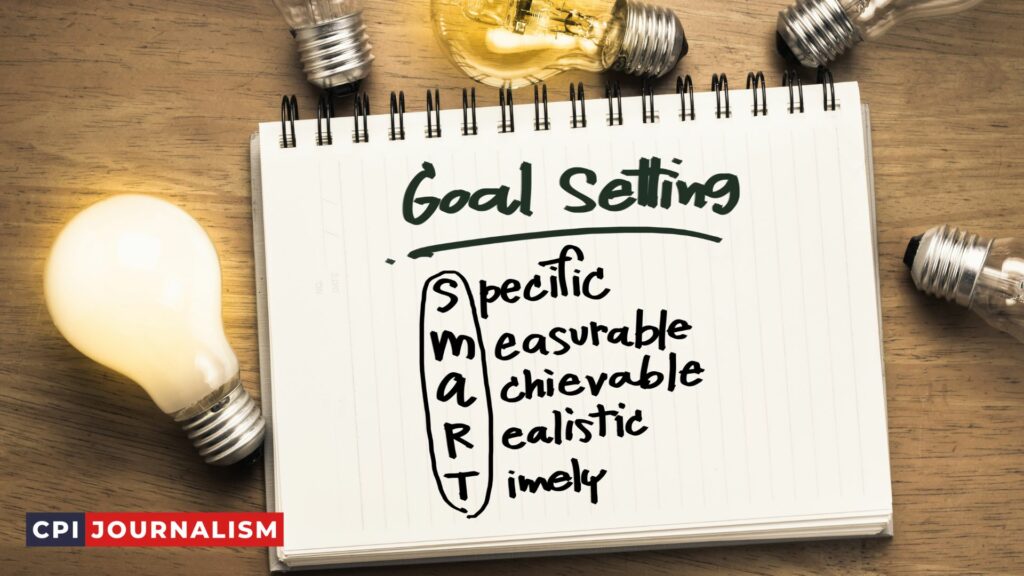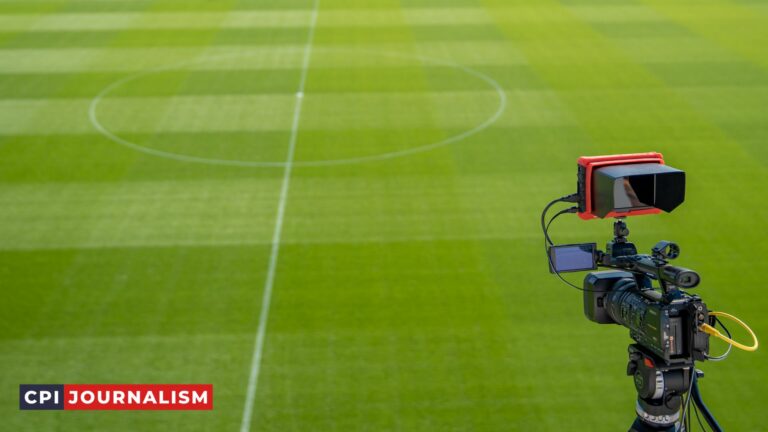How Can Sports Journalists Manage Their Workload And Deadlines?
Greetings Fellow Journalists! As an experienced journalist with many years of experience, I am here to share my knowledge and expertise on how to effectively manage workload and deadlines in the sports industry.
Working in sports journalism entails juggling multiple tasks at once, including researching, writing, interviewing, and editing.
It can be a daunting task, but with proper organization and planning, it can be done. In this article, I will discuss strategies for managing your workload and deadlines to make the most of your valuable time.
A. Overview of the Challenges Faced by Sports Journalists
Sports journalists face a unique set of challenges when it comes to managing their workload and meeting deadlines.
Not only do they have to contend with the unpredictable nature of the sports world, but they must also navigate the ever-changing landscape of media outlets, public relations, and marketing.
The pressure to produce timely, accurate, and engaging content can be overwhelming. With 24/7 news cycles, sports journalists are often required to produce content on short notice.
This can be difficult when faced with tight deadlines and limited resources. Additionally, there is often a need to quickly filter through and analyze vast amounts of data to produce meaningful stories.
Sports journalists also must manage the relationships they have with various stakeholders such as athletes, coaches, and teams. Maintaining these relationships is key to breaking stories and gaining exclusive access.
However, maintaining these relationships requires a delicate balance of trust and trustworthiness, which can be difficult to achieve.
Finally, sports journalists must also contend with the ever-evolving nature of technology and media platforms. In order to stay current and relevant, sports journalists must continuously learn and adapt to new tools and technologies, such as analytics, social media, and live streaming.
This can be time consuming and overwhelming, especially when working within tight deadlines.Overall, sports journalists must navigate a variety of challenges in order to produce timely, accurate, and engaging content.
These challenges can be daunting, but with the right strategies and techniques, sports journalists can manage their workload and meet their deadlines.
Managing Workload
Managing a workload and meeting deadlines can be one of the most difficult tasks for a sports journalist. As a journalist, it is important to remain focused, organized, and disciplined to ensure that tasks are completed on time.
Here are some tips for effectively managing a workload and meeting deadlines:
1. Prioritize Tasks: Take time to prioritize tasks and set deadlines that are realistic and achievable. It’s important to prioritize tasks, as this will help you to identify which tasks must be completed first and which tasks can wait.
2. Create a Schedule: Creating a schedule that breaks down tasks into smaller, more manageable pieces is essential for staying on track and meeting deadlines. This will help you to keep a clear overview of what needs to be done and how much time it will take.
3. Set Reasonable Deadlines: Setting reasonable deadlines is important for managing workload and staying motivated. It is important to note that deadlines should be realistic and achievable. This will help to ensure that tasks are completed on time and that they meet the required standards.
4. Ask for Help: Don’t be afraid to ask for help if you need it. There are many experienced journalists who are more than happy to provide advice or guidance.
5. Take Breaks: Taking breaks throughout the day is essential for maintaining focus and staying motivated. Taking regular breaks will help to keep your mind clear and prevent burnout.
By following these tips, sports journalists can effectively manage their workload and meet their deadlines.
It is important to remember that managing a workload and meeting deadlines can be challenging, but it is possible with the right approach.
A. Prioritizing Tasks
One of the key skills for any journalist, especially in the field of sports, is the ability to prioritize tasks and manage deadlines. To effectively prioritize tasks, it is important to consider the urgency, importance, and complexity of each task.
For tasks with a tight deadline, it is important to focus on that task first, regardless of its complexity or importance. If a task is important and time-sensitive, it should take precedence over other tasks.
For example, if a deadline is approaching for a feature story, it should be worked on as soon as possible, even if another task is more complex.
For tasks with a longer timeline, it is important to consider the importance or complexity of each task. If a task is complex but not particularly important, it may be best to leave it until later.
On the other hand, if a task is both complex and important, it may be best to focus on it first.
Finally, it is important to manage time effectively by planning ahead and breaking down tasks into smaller, manageable chunks.
Planning ahead and delegating tasks to other team members can help make sure that deadlines are met and tasks are completed to a high standard.
B. Breaking Down Projects into Manageable Chunks
One of the most important skills a sports journalist must master is how to break down large tasks and projects into smaller, more manageable chunks.
This skill can be particularly useful when you are facing tight deadlines or multiple assignments that need to be completed in a limited amount of time.
The key to breaking down large projects into smaller tasks is to prioritize and focus on the most important elements first. Start by asking yourself:
what are the most important elements of this project? Once you have identified those elements, you can break the project down into smaller, more manageable chunks.
For example, let’s say you have to write an article about a major sporting event. The first step would be to break the article down into the different sections and tasks that need to be completed.
You will need to conduct research, interview relevant sources, write the article, edit it, and submit it. By breaking the project down into these smaller tasks, you can focus more effectively on each task and work through them in an organized, efficient way.
Another way to break down larger tasks is to set manageable goals and deadlines. This can help you stay on track and avoid procrastination.
For instance, if you have a deadline to submit an article, break the task down into smaller goals with mini-deadlines.
This could include setting a goal to conduct research by a certain date, to write the first draft by another date, and to submit the final draft by the original deadline.
By breaking down projects into manageable chunks, you can stay organized and on task to ensure that you meet your deadlines.
C. Utilizing Technology to Streamline Processes
Sports journalists can use technology to their advantage to help manage their workload and meet deadlines.
From creating digital media management solutions to utilizing apps to stay organized, there are plenty of tools available to assist in streamlining the workflow of the busy sports journalist.
One of the most important tools to utilize is a digital media management system. This type of system allows journalists to store, track, organize, and share their articles, images, and videos.

This makes it easy to find and access the necessary files, no matter where they are stored. Additionally, this system can be used to collaborate with other journalists, allowing teams to work together and share information in real-time.
Another great tool for sports journalists is a note-taking app. This allows journalists to quickly jot down ideas, take notes on interviews and events, and keep track of important information. This can help save time by having all the necessary information in one place and easily accessible.
Finally, utilizing task management apps can help keep journalists on track and organized. This type of app allows journalists to plan out their tasks for the day, keep track of deadlines, and set reminders for upcoming tasks. This can help ensure that nothing is forgotten and that deadlines are met.
By utilizing these tools, sports journalists can help streamline their processes and make managing their workload and deadlines much easier.
Taking the time to find the right tools and set up a system that works for them can make a huge difference in the efficiency and effectiveness of their work.
D. Delegating Tasks to Other Team Members
Delegating tasks to other team members can be a great way to manage workloads and deadlines. Knowing when to delegate and who to delegate to is essential. It is important to find team members who are reliable and have the necessary skills to complete the task.
When delegating tasks, it is essential to be clear about the expectations and the timeline. Make sure to explain the task in detail, giving clear instructions and setting a realistic deadline. It is also important to provide team members with the necessary resources and tools to complete the task.
When delegating tasks, it is important to stay in communication with the team members. Make sure to check in with them regularly to ensure that the task is being completed on time and to the expected quality.
It is also important to remember that delegating tasks is not a sign of weakness, but rather a way to be more efficient and productive.
If you find yourself overwhelmed by workloads and deadlines, do not be afraid to delegate tasks to other team members. It can be a great way to manage your workload and meet deadlines.
E. Taking Regular Breaks
As a sports journalist, it is important to remember that although you may be under pressure to meet deadlines, it is just as important to take regular breaks.
It can be tempting to stay glued to your desk in order to get work done, but this can actually be counterproductive.
Taking regular breaks throughout the day can help to clear your head, reduce stress, and increase your focus.
It is important to use your breaks wisely and make sure they are restful. Make sure you get up and move around, stretch, or take a short walk.
Taking a few minutes to meditate or do some deep breathing exercises can also help to reduce stress levels. Additionally, if you can, take the opportunity to get some fresh air outdoors.
It is also important to take regular breaks from your work, not just during the day, but also from your work in general. Make sure to take some time off on weekends and vacations throughout the year in order to recharge and return to your work with a fresh perspective.
Finally, make sure to get plenty of sleep each night. Sleep is essential for both physical and mental health, and can help you maintain focus and energy during the day.
A good night’s sleep will help you to stay productive and focused, and will help you to better manage your workload and deadlines.
III. Meeting Deadlines
Meeting deadlines is an essential skill for any sports journalist. It is a challenge, but with the right strategies, it can be done.

Here are some tips for managing workload and ensuring timely delivery of stories:
1. Set realistic goals: When planning a story, set realistic goals and deadlines for yourself. This will help you stay focused and organized, and it will make it easier to meet your deadlines.
2. Prioritize tasks: Prioritize tasks based on importance and urgency. This will help you stay on top of your work and ensure that you complete important tasks first.
3. Create a schedule: Create a schedule and stick to it. This will help you stay on track and ensure that you meet your deadlines.
4. Take breaks: Breaks are important for maintaining focus and productivity. Make sure to take regular breaks throughout the day to rest and recharge.
5. Ask for help: Don’t be afraid to ask for help if you’re feeling overwhelmed. Working with an editor or other colleagues can help you manage your workload and ensure that you meet your deadlines.
6. Stay organized: Stay organized and use tools such as calendars and task lists to stay on top of your work. This will help you stay focused and make sure that you don’t miss any important deadlines.
By following these tips, you will be able to manage your workload and meet deadlines more effectively. With the right strategies and tools, you can ensure that your stories are delivered on time and to the highest standard.
A. Setting Realistic Deadlines
As a sports journalist, it is important to set realistic deadlines for yourself and your team in order to stay on top of your workload and meet the demands of your readers.
Here are a few tips for setting realistic deadlines:
1. Estimate the time you will need to complete a task. Be realistic about how long it will take you to research, write, and edit an article or other piece of work.
2. Break down your work into smaller tasks and set deadlines for each individual task. This will help you stay organized and on track.
3. Take into account other commitments or distractions that may take away from the time you have to complete a task.
4. Consider the importance of the task. If it is a high-priority task, set a more aggressive deadline.
5. Stay flexible and be willing to adjust deadlines if needed.
By setting realistic deadlines for yourself and for your team, you can ensure that you have the time and energy to create quality work. This will also help you meet the expectations of your readers and build a successful career as a sports journalist.
B. Creating a Schedule and Sticking to It
Sports journalism is a demanding profession that requires you to manage a lot of tasks and deadlines. As a sports journalist, you need to maintain a good balance between your work and personal life. One way to do this is by creating a schedule and sticking to it.
Creating a schedule is an essential part of managing your workload and deadlines. Start by making a list of all the tasks and deadlines you have to accomplish. Assign reasonable timeframes for each task.
Establish a timeline for when the tasks should be completed and when the deadlines must be met.
Once you have created your schedule, it is important to stick to it. Make sure you are clear about your priorities and focus on tasks that are most pressing. Break down large tasks into smaller, more manageable ones and set a timeline for completing each one.
It is also important to set aside time for breaks and relaxation. Taking a few minutes to clear your head and relax will help you stay focused and productive.
By creating and sticking to a schedule, you will be able to effectively manage your workload and deadlines. It will also help you maintain a good balance between your work and personal life.
C. Utilizing Technology To Automate Tasks
When it comes to managing workload and deadlines, utilizing technology can be a huge help. Technology can be used to automate certain tasks, freeing up more time for journalists to focus on the more important aspects of their work.
For example, journalists can set up automated email notifications for new sources and updates on certain topics. This can help them stay informed about any breaking news, ensuring they don’t miss out on any important stories.
Tech tools like RSS readers can also help journalists keep track of new stories and content from different sources. This can be a great way to save time and effort, as it eliminates the need to manually check a multitude of websites for updates.
Journalists can also take advantage of online storage solutions like Dropbox or Google Drive to store their work and back it up. This can help ensure that their work is safe and always available if they need to access it.
Finally, journalists can also use advanced editing and writing tools, such as Grammarly, to improve the quality of their work.
These tools can help journalists save time by automatically checking for errors and suggesting possible improvements.
By utilizing technology, sports journalists can automate certain tasks, allowing them to spend more time on the important aspects of their job. This can help them better manage their workload and meet their deadlines.
D. Establishing A System Of Accountability
As an experienced journalist, I cannot stress enough the importance of establishing a system of accountability for managing workloads and deadlines.
This system should be tailored to each individual journalist, as no two journalists will have the same work style or needs.
First, it is important to set realistic goals for yourself and to be honest about how much you can realistically accomplish in a given amount of time. This will give you an idea of how to set up a timeline that works for you and your workload.
In addition, you should create a system to track your progress and make sure that you are meeting your goals.
This can include setting reminders for yourself, tracking your progress with a spreadsheet, or even setting up a rewards system for yourself to motivate you to stay on track.
Finally, it is important to have someone to hold you accountable. This can be a colleague, friend, or family member who can check in with you and make sure that you are meeting your goals. Having someone to provide support and guidance can be invaluable in helping you stay on track.
By establishing a system of accountability, you can ensure that you are managing your workload and deadlines effectively. This will help you stay organized and productive, so that you can work in the most efficient way possible.
E. Setting Reminders

One of the most effective ways to manage your workload and deadlines as a sports journalist is to set reminders. Whether it be a physical planner or a digital calendar, setting reminders can help you stay on track with your deadlines and ensure that your work is done on-time.
Reminders allow you to be more organized and plan ahead for upcoming deadlines. You can set reminders for yourself to research topics, write drafts, and submit your work. Additionally, you can set reminders for meetings, interviews, or any other commitments related to your job.
By setting reminders, you can also give yourself time for breaks and for other tasks, such as networking and socializing. This will help you stay organized and also give you time to focus on other areas of your career.
Finally, reminders can help you manage your stress levels. Knowing that you have a reminder set for an upcoming deadline can give you peace of mind and help you stay focused on the task at hand. Additionally, reminders can act as a motivator, as they can help you stay on track and keep up with your work.
IV. Conclusion
As a sports journalist, managing workload and meeting deadlines can be a daunting task. However, with the right strategies and practices, it is possible to work efficiently and effectively.
By following the steps outlined in this article, you can become a better time manager and learn to handle your workload and deadlines with ease.
First, it is important to plan ahead and set realistic goals and timelines. Taking the time to organize your tasks into manageable chunks will help you prioritize your work and keep you on track.
Additionally, it is important to take regular breaks and avoid procrastination, as these can be detrimental to productivity.
Second, make sure to use the right tools, including organizational apps and digital calendars. This will help you stay organized and maximize your efficiency.
It is also important to create and maintain a healthy work-life balance, which will help you stay productive and avoid burnout.
Finally, don’t be afraid to ask for help when needed. Collaborating with other journalists and professionals can help you stay on top of your workload and make sure that your deadlines are met.
In conclusion, managing workload and meeting deadlines is an essential part of a sports journalist’s job. With the right strategies and practices in place, it is possible to stay organized, maximize efficiency and remain productive.
By following the steps outlined in this article, you can become a better time manager and learn to handle your workload and deadlines with ease.
A. Summary of Strategies for Managing Workload and Deadlines
As a sports journalist, managing your workload and meeting deadlines can be one of the most challenging aspects of the job.
However, with the right strategies and tactics, it is possible to stay on top of your workload and meet deadlines without excessive stress.
Here are some of the strategies that I have found to be effective in managing workload and meeting deadlines:
1. Prioritize and plan: Take some time to prioritize the tasks you need to complete and create a work plan that allows you to complete each task in a timely manner.
2. Break down tasks: Break down large tasks into smaller, more manageable tasks that you can complete in shorter timeframes.
3. Manage your time: Utilize time management techniques such as the Pomodoro Technique to ensure that you are able to complete tasks in a timely manner.
4. Take breaks: Take regular breaks throughout the day to clear your head and refocus your energy.
5. Use technology: Utilize technology such as apps and software to help track and manage your tasks and deadlines.
6. Communicate: Communicate with your editor and clients to ensure that you are able to meet deadlines and expectations.
7. Stay organized: Stay organized by maintaining a clean workspace and utilizing organizational tools such as calendars, lists, and reminders.
By implementing these strategies, you can ensure that you are able to manage your workload and meet deadlines without unnecessary stress.
B. Final Thoughts on the Importance of Time Management for Sports Journalists
The importance of effective time management for sports journalists cannot be overstated. As a journalist, you are responsible for producing accurate, timely and reliable information for your audience.
The ability to manage your time efficiently is essential in order to meet deadlines and produce high-quality work.
Time management is not only important for meeting deadlines, but also for producing high-quality work. By managing your time well, you can ensure that you are able to research thoroughly and produce well-written articles.
Additionally, effective time management allows you to stay organized, which is essential in order to meet deadlines and ensure that you are able to work efficiently.
Finally, time management is also key in order to stay up-to-date with the latest news and developments in sports.
By staying organized and managing your time well, you can ensure that you are able to keep abreast of the latest news and developments in the sports world.
In conclusion, time management is essential for sports journalists in order to produce high-quality work, meet deadlines, and stay up-to-date with the latest news and developments in the sports world.
By employing effective strategies for managing your time, you can ensure that you are able to produce accurate, timely and reliable information for your readers.







